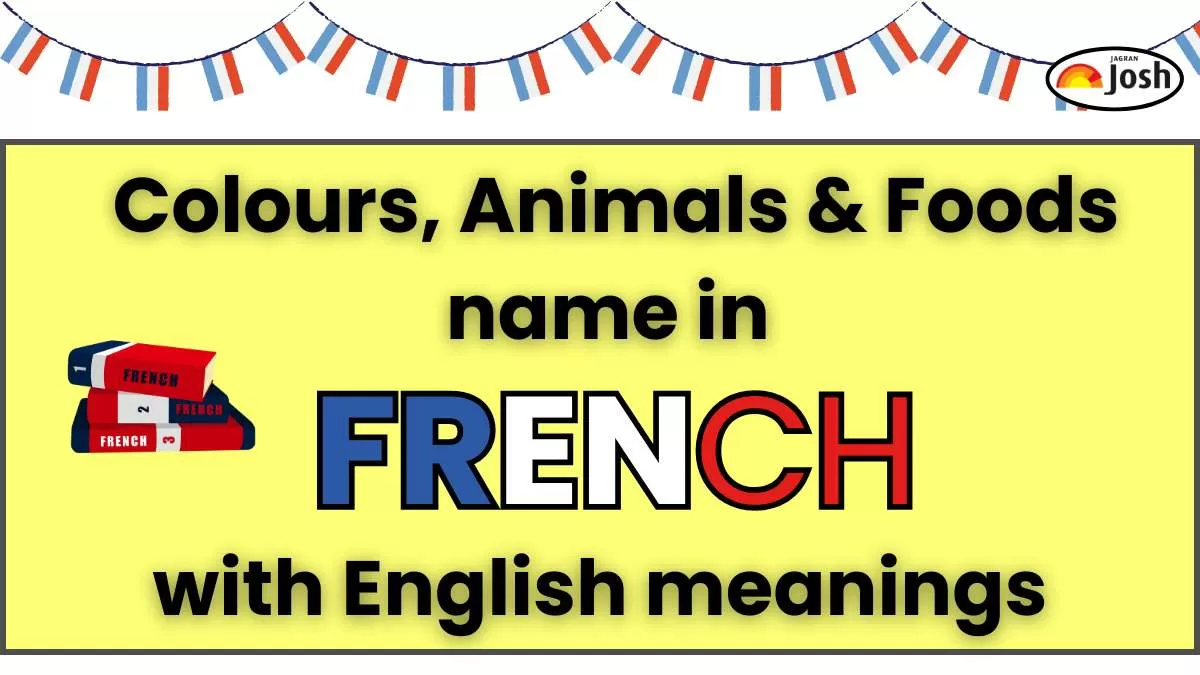Gaining knowledge of a new language is like opening a treasure trove of fascinating terms, civilisations, and tales! The language of love, French, is spoken in numerous countries, including Canada, France, and parts of Africa. We will discuss some enjoyable and simple French terms today that are easy for all students to learn. We'll start by going over the French names of foods, colours, and animals. Yes, we'll also explain their meanings in English.
French Colours and Their English Meanings for School Students
Everything around us is made more vibrant by colours! The following list of basic French hue names includes their English equivalents:
| French | English |
| Rouge | Red |
| Bleu | Blue |
| Vert | Green |
| Jaune | Yellow |
| Noir | Black |
| Blanc | White |
| Rose | Pink |
| Gris | Grey |
| Violet | Purple |
| Marron | Brown |
French Animal Names and Their English Meanings for School Students
Animals are not just adorable; they also help us learn languages better! Here are some animals in French:
| French | English |
| Chien | Dog |
| Chat | Cat |
| Lapin | Rabbit |
| Oiseau | Bird |
| Cheval | Horse |
| Poisson | Fish |
| Souris | Mouse |
| Vache | Cow |
| Tigre | Tiger |
| Lion | Lion |
French Food Names and Their English Meanings for Students
The world over, French cuisine is renowned! Let's learn how to pronounce some delectable French foods:
| French | English |
| Pomme | Apple |
| Pain | Bread |
| Fromage | Cheese |
| Lait | Milk |
| Chocolat | Chocolate |
| Gâteau | Cake |
| Riz | Rice |
| Poulet | Chicken |
| Eau | Water |
| Banane | Banana |
Why is learning French words important for students?
Learning French (or any new language) at a young age is super helpful because:
- It improves memory and brain power
- Helps you understand other cultures
- Is useful for travel and future jobs
- Makes learning other languages easier
- Boosts confidence in communication
- You can impress your friends and family!
Knowing a few French names for foods, colors, and animals puts you on the path to being a young language expert! Continue learning a few words each day, attempt to employ them in sentences, or use French to label objects in your home.
Remember: “Petit à petit, l’oiseau fait son nid”— little by little, the bird builds its nest.
Au revoir (Goodbye) and Bonne chance (Good luck)!
Also Check:
